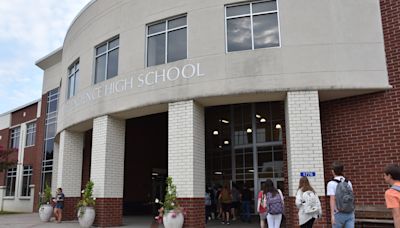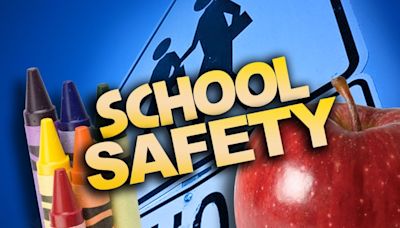Search results
- In the United States, public schools are generally allowed to search students' backpacks as long as the search is reasonable under the circumstances.
www.educationlawyers.com › blog › 2022/12/20Are schools legally allowed to search students? — Education ...
Dec 20, 2022 · In the United States, public schools are generally allowed to search students' backpacks as long as the search is reasonable under the circumstances. The Fourth Amendment to the U.S. Constitution protects citizens from unreasonable searches and seizures, but it is generally understood that this protection applies to searches of a person's body ...
People also ask
Can a school force a student to hand over a backpack?
Can I bring a backpack to school if I'm a student?
What is the difference between a locker and a backpack?
Can a school search a student's locker or desk?
- Can A Student Be searched at School and Have Their Property taken?
- Can A Student’S School Locker Or Desk Be searched?
- Can The School Search My Pockets, Backpack, Or Other Personal items?
- Can A Police Officer Search My Pockets, Backpack and Other Personal items?
- Can A Student Be Questioned by School Staff?
- What Is A Custodial setting?
Students have an “expectation of privacy” that applies outside and on school property. However, there are different rules for the different locations. There are also different rules based on who is doing the search and what item is being searched.
Generally, any item that is considered property of the school can be searched without letting the student or the parent know. School staff can also give permission to the police to look in your locker or desk, even though you use it. Schools may have a policy on this and must be provided to students upon request.
When it comes to your body and property, there are rules that must be followed. Which rules apply depends on who is doing the search. School staff may search a student if there are “reasonable grounds” that the search will turn up evidence that the student broke a school rule. This means that staff have more than a hunch that the student did someth...
If a police officer is doing the search, a different set of rules apply. The police must follow a higher standard to search you. The police must have either 1. “Probable cause,” (Probable cause means a reasonable person believes a crime was, is, or will be committed.) or 2. a search warrant from a Court. If the police do not have probable cause or ...
School staff have the right to question students. Maine law does not say anything about whether the school has to first contact your parent. The school district may have a policy that talks about this. Check the school’s website or call the administration office to see if there is a policy. It is important to know that anything a student says to sc...
Generally, students are in a custodial setting when they are with the police and are not free to leave. If the police question the student when they are not free to leave, it is a “custodial interrogation.” There are two factors to look at: 1. What were the circumstances leading up to you being in the setting, and 2. Would a “reasonable person” hav...
Feb 5, 2019 · Schools have more leeway than police when searching students’ pockets, backpacks, lockers, and other belongings, but there are limits. Learn how Fourth Amendment protections against unreasonable search and seizure apply in public schools.
The authority of teachers to search students’ bags varies based on school policies, state laws, and the nature of the situation. In many cases, schools provide guidelines that define the circumstances under which a teacher may conduct a bag search.
Feb 5, 2019 · When can a teacher or principal search a student’s phone, locker, or backpack? Can a school force you to take a drug test or conduct a strip search? Look below for answers to common questions about privacy rights at school.
Jan 30, 2023 · And when is it okay or not okay for school administrators to search you? Here's what you should know. When Can a Student Get Searched? Thanks to a 1985 Supreme Court case, school staff does not have to meet the same requirements to search a student as police do when they search adults.
Students have a privacy right in their personal belongings, such as backpacks, and school officials must have “reasonable suspicion” before searching a student’s items. Lockers, on the other hand, are owned by the school, so the school can search those without having “reasonable suspicion.”





